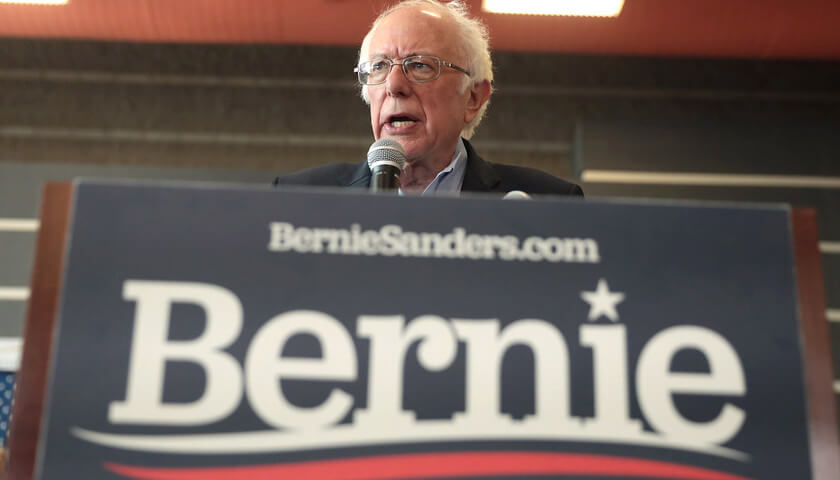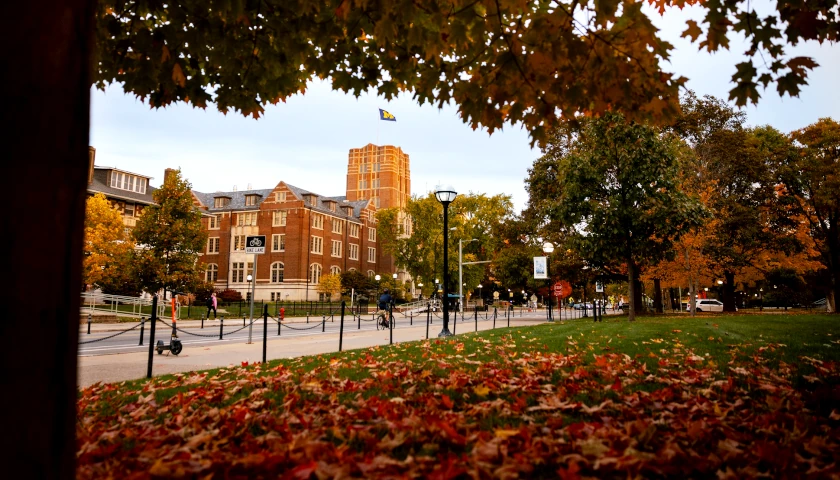by Angelo Codevilla
By spearheading #TheResistance to candidate and then President Trump, U.S. intelligence agencies have shown the public they are far less about informing the government about foreign enemies than they are about taking the leading part in the Democratic Party’s use of power over its domestic adversaries.
The agencies’ chief interest in domestic partisan skullduggery has never been a secret to those of us who are acquainted with them, as well as to those who have closely read the biographies and autobiographies of the CIA’s and FBI’s leaders. Nor could anyone have missed Senator Charles Schumer’s (D-N.Y.) premise, when he threatened Trump with the agencies’ power to hurt him “six ways from Sunday.” The Democratic Party’s de facto head can make such threats because these agencies—along with the mainstream media—are part and parcel of the larger enterprise he leads.
This past week, when the agencies concocted a briefing-made-for-leaking to the effect that the Russian government wants Vermont socialist Bernie Sanders to win the Democratic Party’s presidential nomination, as well as to see Trump reelected, they showed a refined dimension of their partisanship.
What do the agencies have against Sanders? Here lies a tale that tells much about ruling classes, our own included.
Facts? Why Bother?
Noting the factual baselessness of the agencies’ latest claim is a necessary preface to explaining that dimension of finely targeted partisanship.
Even political news junkies may be forgiven for having forgotten how the media’s campaign to convince Americans that Vladimir Putin was helping candidate Trump went into high gear: In July 2016, as the Democratic Party’s national convention approached, Wikileaks published a trove of emails from the Democratic National Committee’s server showing that the party hierarchy had done all sorts of things to deprive Sanders of the nomination and deliver it to Hillary Clinton.
The DNC forbade, and continues to forbid, any independent analysis of its server. It rejected the possibility that a disgruntled employee had given the emails to Wikileaks, and blamed “the Russians” for having hacked the server. The FBI accepted this story without the slightest shred of factual evidence to back it up.
The fact that one such employee, Seth Rich, was murdered, did not inspire the FBI to investigate. The murder remains unsolved. But the FBI rushed to help launch investigations that drew upon the U.S government’s every intelligence resource in probing Donald Trump’s purported association with the Russians.
We know, of course, that these investigations not only turned up zero evidence of “collusion” but also that turning up facts was not why the agencies, the Democratic Party, and the media engaged in them. No. For all of the above, the investigations were premises—“predicates” in current lingo— for endless media stories pyramided on stories about Trump ’s villainy. They were agitprop.
Little noted it this cacophony is the fact that, in July 2016, the FBI’s decision to take the DNC’s story at face value, not to press for examining the server, and not to investigate other possibilities for the leak—never mind Rich’s murder—was to shield the Democratic Party’s establishment against a threat more clear and present than the then-unlikely prospect that Trump might defeat Hillary Clinton. Looming over the Democratic Party at that instant was that Bernie Sanders’ people were on the verge of disrupting the convention and jeopardizing her election.
The FBI’s collusion in the supposed hacking, its support of the narrative of the DNC-as-victim, rather than of the reality of the DNC’s fix of the primaries, helped cut the ground from under possible Sandersista protests. This would not be the last time that the agencies took sides in intra-ruling class quarrels.
If at First You Don’t Succeed, Lie, Lie Again
Fast forward to February 2020. No sooner had Sanders won the New Hampshire primary than the agencies weighed in against him: Sanders is Putin’s preferred candidate.
I thank Christian Whiton for reminding us that, “in January of 2018, a Washington Post opinion headline boasted, ‘The entire Republican Party is becoming a Russian asset.’ A year later: ‘Here are 18 reasons Trump could be a Russian asset.’ In July: ‘Mitch McConnell is a Russian asset.’ In December: ‘It has come to this: Ted Cruz is Putin’s stooge.”’ This time, the agencies turned their hoary hoax on Sanders. The rest of the media echoed on cue.
Not only did the briefings give no evidence for the agencies’ conclusion about Russia’s preferences—they, and the media no longer deal in facts. Nor is the agencies’ confusion of their own opinions for facts even news anymore.
Nobody who knows U.S. intelligence can imagine that any factual basis for such an opinion could exist. Where would such facts come from? U.S. agents in the Kremlin? A cruel joke! We have never had anybody in a position to know what Kremlin leaders are thinking.
Intercepts? We have not been reading high-grade Russian cypher since the early 1960s.
Rumor? Sure. It simply depends on what rumors the agencies choose to believe. For example, they believed the Steele dossier, paid for by . . . oh yes, by the Democratic Party, specifically by the establishment faction thereof. Could it possibly be that these intelligence professionals believed the dossier because it was the instrument that the party had handed them?
Alas, the agencies expect exemption from the question: “how the hell do you know that”?
What’s Going On Here?
In a nutshell: the ruling class’s establishment element, which has long used its intelligence and media components against conservatives, has taken to using them to fight off a challenge from its left wing.
But by so empowering this combine to help decide a contest for power within itself, the establishment is embittering its own divisions, mounting a tiger, and whetting the tiger’s appetite.
How should anyone expect the Sandersistas, were they to take control of the party, not to avenge themselves? And why should not the security-media combine, having tasted the power to make and unmake presidents, not decide at some point to wield Praetorian power on its own account?
The history of ruling classes in other places that have used intelligence to decide who will rule is replete with instances of purges and reprisals.
That is why the ruling class’s establishment—intelligence and media included—seem more worried about Bernie Sanders than Donald Trump. During the past three years or so, the establishment has learned that Trump barks but mostly does not bite. Nobody fears Trump. Trump’s presidency notwithstanding, the establishment has done very well for itself. They can count on this state of affairs continuing under another such presidency.
Sanders’ takeover of the party, never mind possibly of the federal government, is something they know they can’t survive. That is because Sanders’ movement is composed of a large cadre of serious people, many of whom are admirers of the control systems by which progressive ruling classes have empowered themselves over the peoples of Cuba, Nicaragua, and Venezuela.
And let’s face it: Sanders did not choose to spend his honeymoon in the Soviet Union blissfully unaware of how the joint was run, or of the purges by which its masters had secured themselves against the party and the KGB.
The Democratic Party’s establishment—very much including the intelligence and media combine—would be the first to experience the Sandersista regime’s delights. That, and not fear of Trump, is what explains their panic.
– – –
Angelo M. Codevilla is a senior fellow of the Claremont Institute, professor emeritus of international relations at Boston University and the author of To Make And Keep Peace (Hoover Institution Press, 2014).
Photo “Bernie Sanders” by Gage Skidmore. CC BY-SA 2.0.





